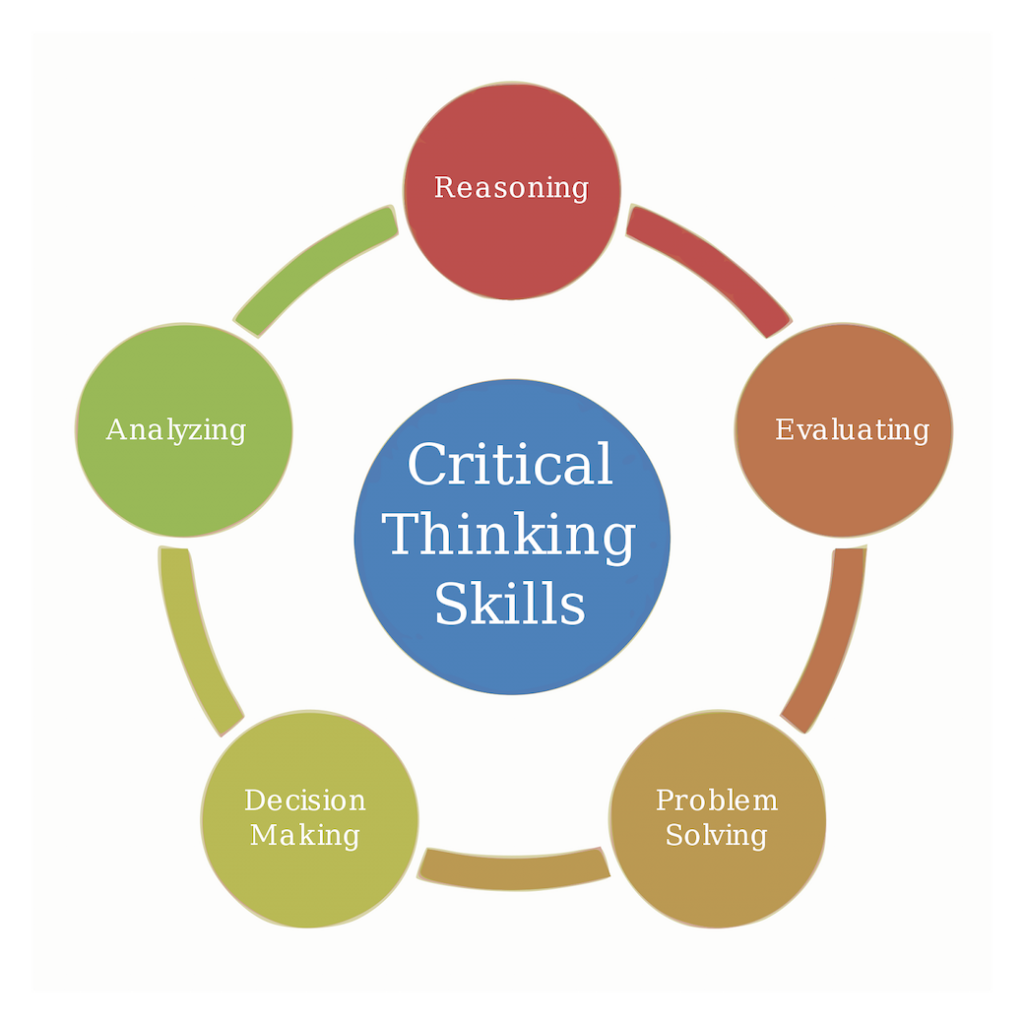Transferrable skills are considered to be the holy grail of progressive education. But are all of those really transferrable across various domains? Nick Alchin explores this question from his vast teaching and educational leadership experience.

I often wonder what education can and cannot learn from other sectors. I was, therefore fascinated to come across this HBR article which points out that hospitals managed by doctors perform better than those managed by people with other backgrounds… [and] there are many examples of people who ran one company effectively and had trouble transferring their skills to the new organization. The argument is that skills do not transfer.
Very interesting, and I know I would certainly baulk at being asked to lead a hospital, bank or manufacturing company. Fortunately that’s hardly likely, but it got me thinking about the nature of transferrable skills in general; and in particular, about the skills we’re teaching our children, and the skill of critical thinking in particular, as it seems to be the one that’s so important in a rapidly changing employment scene.
There are many online and taught critical thinking courses available, and they might seem to be a great idea, transcending the traditional subjects as they do. In these courses critical thinking consists of discrete skills such as analysis, interpretation, reflection, evaluation, inference, explanation, prediction, problem solving, and decision-making. All valuable, and all can be learnt – so why not explicitly study them outside traditional disciplines?
The unspoken analogy seems to be an athletic one. In soccer, for example, we might practice kicking, heading the ball, passing, etc., and drill in each of these areas; we would then be able to apply these when playing a game. The ideal would that we drill so often that skills become routinized and so familiar that they are said to be deep in ‘muscle memory’ (even though muscles do not have memory, of course) and can be unconsciously executed.

I have come to wonder if this analogy is profoundly mistaken. The basic point, I think, is that the pursuit of expertise is multi-faceted in a way that soccer is not. In soccer, the skill of passing can be accurately assessed – can I get the ball from A to B accurately, under pressure, and perhaps having to guess where point B is? Skills in critical thinking, by contrast, cannot be separated from understanding the nature and purpose of the task one is attempting to accomplish. Becoming better at predicting, for example, cannot be practiced in the abstract because prediction is not a unitary skill and can only be exercised in context. That is, predicting how a story will end relies on an utterly different set of skills than does predicting the weather, or predicting how an object will respond under a table-saw. Same for the skills of interpretation – interpreting a graph is very different affair than interpreting a play, or interpreting historical evidence.
Now I come to think of it, perhaps teaching generic critical thinking skills is like teaching passing but without specifying the game. Would it make sense to teach passing if we did not know if the athlete was going on to American Football, Soccer, Water-Polo, Quidditch, Volleyball or Basketball? About as much sense, I think, as teaching analysis without knowing if the context were Drama, Literature, Maths, Geography, Music or Biology.
That analogy actually helps, because if we wanted to teach passing in that sport-agnostic situation, there probably are a few things we might look at – but it would not be the specifics of passing. It would help to look at flexibility, fitness, strength, endurance and sharpness of reactions. These are high-level, non-specific things to pursue. So are there equivalents in critical thinking? If so, these would not be the context-specific elements mentioned about – those of analysis, interpretation, reflection, evaluation, inference, explanation, prediction, problem solving, and decision-making.
So what domains are left to look at? Mark Fordham, drawing on Bailin et al (1999), argues that logic, statistics, linguistics and (he claims) most obviously philosophy might be such domains, because each is a domain with its own clear standards of what it means to think well, and yet each, by its nature, finds itself drawn on in a great many contexts. That makes a lot of sense to me; I seem to draw on a philosophical and statistical approaches quite often; it also resonates with what I know about seeing students over the years learn to think, and learn to think critically.
If this is correct, it certainly calls into question what we mean when we talk about ‘practical’ subjects. Perhaps philosophy is the most practical subject of all, once we are talking about transferring skills from one domain to another – which if you believe the economists and future-ologists, is what will be really important in the future. Or perhaps it means that we need to be very careful indeed about thinking how we can abstract skills from the very contexts which given them meaning.
Note: This article was originally published in 2019 in Nick’s personal blog ‘Education, Schools and Culture’. Please visit his blog for more such profound thoughts and deep insights into many things related to Education.
References
Bailin, S., Case, R., Coombs, J.R. & Daniels, L.B., Common misconceptions of critical thinkingJournal of Curriculum Studies, 31.3, (1999a), pp.269-284
Bailin, S., Case, R., Coombs, J.R. & Daniels, L.B., Conceptualising critical thinking, Journal of Curriculum Studies, 31.3, (1999b), pp.285-302
Fordham, M (2018) Critical Thinking and Domain Specificity
Markham, A (2017) Can You Be a Great Leader Without Technical Expertise? Harvard Business Review Nov 17
Nick has taught in holistic, values-driven schools schools since 1995, first teaching Theory of Knowledge and Mathematics at UWCSEA Dover and subsequently at the International School of Geneva in Switzerland. After working as Director of IB at Sevenoaks School, UK, and as Dean of Studies at the Aga Khan Academy in Mombasa, Kenya, Nick returned to Singapore to lead a team establishing the UWCSEA East High School in 2012 as the High School Principal. He was appointed Deputy Head of East Campus in 2016 and took up the position of Head of East Campus in January 2021.
IB Chief Assessor for Theory of Knowledge from 2005 to 2010 and Vice Chair of the IB Examining Board from 2007 to 2013, he is a textbook author, IB examiner, workshop leader and consultant who writes and speaks widely on various educational matters.
Nick has a bachelor’s degree in Natural Sciences from Fitzwilliam College, Cambridge, postgraduate certificates in Engineering and Education from Wolfson College, Cambridge and Manchester College, Oxford and a Master’s in Educational Leadership from the Open University.
An avid reader, Nick also enjoys running in the heat, evening walks in the cool and baking bread each weekend. His three children enjoy activities from volleyball to podcasting to drumming, and Ellie, his wife, is Director of Teaching and Learning on Dover Campus. As a family they enjoy travelling across the region (when they can!), sampling new food, and enjoying the great outdoors.


1 comment